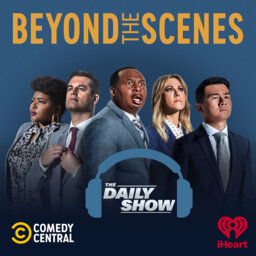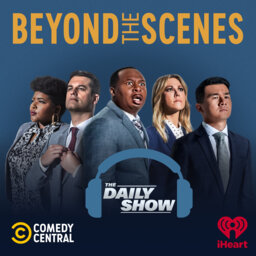Esports: The Rise of Professional Video Gaming
Esports competitions have seen a boom in popularity in recent years with some of the highest paid players making up to six figures. Celebrities like Drake and Post Malone have even invested in the sport. Host Roy Wood Jr. sits down with Daily Show correspondent Michael Kosta and LA Thieves Call of Duty player Sam “Octane” Larew to break down the similarities and differences between traditional and electronic sports and how professional gaming is making its way into the mainstream.
Watch the original segments:
https://www.youtube.com/watch?v=lE4qsJ1Lq1o
Original air date: January 24, 2023
In 1 playlist(s)
Beyond the Scenes from The Daily Show
Imagine The Daily Show, but deeper. Host Roy Wood Jr. dives further into segments and topics covered…Social links
Follow podcast
Recent clips

The Battle Over Critical Race Theory (featuring Kimberlé Crenshaw)
1:06:27

Female Orgasm Onscreen: A Brief Hist-HER-y
36:51

The Queer History of Drag and Conservative Backlash
1:02:14
 Beyond the Scenes from The Daily Show
Beyond the Scenes from The Daily Show